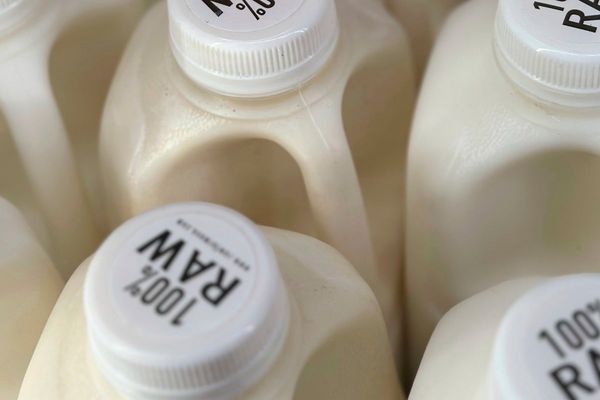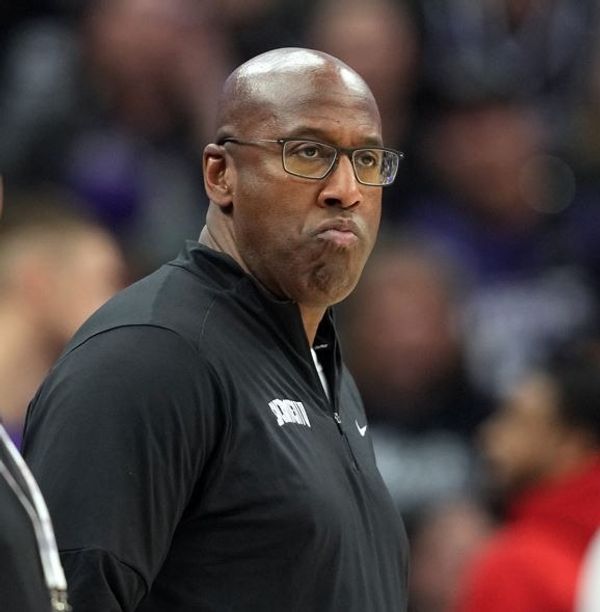WASHINGTON _ As Democrats debate which presidential contender could beat Donald Trump, anti-Trump Republicans _ and recent ex-Republicans _ can think of a few names.
They're just not names that thrill Democratic activists.
"Joe Biden is the type of candidate who could get me to actually look at a Democratic candidate as opposed to an independent," said former Florida Rep. David Jolly, who was a Republican until last year.
"My preference would be to support a man like Michael Bloomberg," emailed Mike Fernandez, who was a GOP megadonor from the Miami area but left the party the day after Trump's election. "And if he runs, I will."
If not Bloomberg? "Biden. Humbled, experienced, non-extremist."
Biden and Bloomberg _ two white, male, relatively centrist septuagenarians _ both appear at odds with the ascendant progressive wing of the Democratic Party. It is unclear, should they run, whether either could pull through a primary, and polls show that Bloomberg in particular would face long odds.
But on Election Day, those two Democrats would be best-positioned to earn the votes of Republicans who rejected Trump in 2016 _ not the candidates tacking leftward to align with an increasingly liberal activist class that has embraced self-described democratic socialists.
"If there's a Democrat that's running on a hard-left agenda, that I think would do more to add to our deficit and debt problem, that would make some of the poor foreign policy decisions by this administration even murkier, no," said John Stubbs, a former George W. Bush administration official who was a founder of a Republicans for Hillary Clinton group in 2016.
It's not that Stubbs and other staunchly anti-Trump Republicans will vote for the president, who, certainly, won without them last time. But these potentially gettable Democratic voters aren't all going to automatically back the other side, either. And in key battleground states such as Florida, Pennsylvania and Wisconsin, Democrats can't simply write them off. Indeed, they have much in common with the moderate, well-educated suburbanites who helped deliver the House to Democrats last fall.
Former Rep. Ryan Costello used to represent exactly those voters. His affluent, suburban Philadelphia-area district was until recently a GOP stronghold. But in 2016 voters narrowly picked the hawkish, fiscally moderate Clinton over Trump, and thanks to new district lines and the national environment, the district grew more Democratic last cycle. Costello retired.
"Biden, (Minnesota Sen. Amy) Klobuchar, Bloomberg," Costello said, when asked which of the potential Democratic contenders would resonate most with his former constituents. (He stressed that he was offering analysis of the district, not his personal preferences.)
Agreed a Texas-based conservative operative, granted anonymity to protect professional relationships: "It would be really, really hard for me to vote for any of them, but Joe Biden would be my favorite among the Democrats. He's a good person, what you see is what you get. He truly is kind of an everyman in a lot of ways. ... I'd take a hard look at him."
That Texas operative, like many dejected center-right voters in the Trump era, would prefer to simply vote for a Republican not named Trump. Some strategists have been seeking to facilitate a GOP primary challenge, pinning their hopes on everyone from Maryland Gov. Larry Hogan to Nebraska Sen. Ben Sasse to former Ohio Gov. John Kasich.
Yet there is also a recognition that a GOP primary bid is a longshot, given Trump's near-unshakable hold on the base _ and certainly, there are Republicans who didn't support Trump in 2016 who have since gotten on board, alarmed by what they see as the Democratic Party's leftward shift and pleased with his policy priorities.
But others, who in 2016 wrote in other candidates or voted third party, would now consider voting Democratic in 2020 if the right nominee emerges.
Charlie Sykes is the editor-in-chief of the outlet The Bulwark, which strives to provide "a voice for non-Trumpian conservatives," and he previously was a prominent "Never Trump" Wisconsin radio host. He wants to see a GOP primary challenge or possibly a centrist third-party candidacy. But he didn't rule out ultimately backing a Democrat such as Biden or Klobuchar, after writing in a candidate last time. ("Hillary brought so much baggage to the race, it was never a serious option ... of course, I also didn't imagine Trump was going to win." Trump won Wisconsin by close to 23,000 votes; there were more than 36,000 write-ins in the state.)
"It's possible that in the end I could be a reluctant Biden voter," he said, though stressed it was too early to make commitments. "There are no circumstances in which I would be a Bernie Sanders or Elizabeth Warren voter."
Of course, "Never Trump" Republicans are not going to decide the Democratic primary. Several were even reluctant to express positive views about Democratic hopefuls, fearful of hurting their chances.
"I don't want this to be a kiss of death, but certainly I want to hear more from Amy Klobuchar," Sykes said.
"Anybody a 'Never Trumper' identifies as a Democrat they're comfortable with will immediately be an object of anger both from Republicans and Democrats," said Tom Nichols, a national security expert who has left the GOP. "The obvious answer for electability is Joe Biden, but I'm not a Democrat so I don't know if that's the right answer among Democrats."
Democrats don't yet know what the right answer is either, but many are skeptical that Biden or Bloomberg would be as competitive in a general election as some moderates think. Biden's decades in Washington give him a voting record that would be heavily scrutinized, and he could be painted as the kind of D.C. "swamp" creature Trump loves to rail against. And Bloomberg, a socially liberal billionaire who is strongly pro-immigration, is not exactly an obvious choice for cutting into Trump's Rust Belt base.
"Maybe this is the mountain populist in me, but I'm not real happy with billionaires being the only people who are sort of viable candidates," said former North Carolina Supreme Court Justice Bob Orr, an anti-Trump Republican, speaking broadly of the field.
Meanwhile, some Democrats argue that the best way to defeat Trump is to electrify the Democratic base with an inspiring progressive candidate, betting that more moderate Democrats and anti-Trump independents will ultimately get in line. Others are pushing for a more centrist nominee.
Sean Bagniewski, the chair of the Polk County Democrats in Iowa, waves off those tensions as a false choice.
"It is possible to appeal to suburban women, Republicans and independents, and still not apologize for what we are," he said.
Still, there is no doubt that some possible Democratic candidates are simply better positioned than others to win over moderate voters.
"Biden, he's tested, people know who he is, I think he has an image of a working-class, common-sense kind of guy," Costello said. "He's got his gaffes, but people think his heart is in the right place."
Bloomberg, he said, could resonate in part because of his efforts on issues like combating gun violence and promoting public health _ efforts that strike conservatives as nanny-state liberalism but connect in more moderate enclaves.
"A lot of his public health initiatives I think most of suburban America would agree with," he said. "He was a Republican, he ran as a law-and-order Republican. The discomfort the far left has with him is precisely why suburban Republicans might find him attractive."
Then there is Klobuchar, a 58-year-old Midwestern woman with a record of winning in Trump territory, who may be better able to connect to a progressive grassroots hungry for diversity than Biden or Bloomberg, though there is fierce competition in the broader Democratic field. She also has a shorter legislative record than Biden does _ less experience, but also fewer votes to explain (though her treatment of staff has already come under scrutiny).
In conversations with Republicans and former Republicans over the last week, several indicated interest in Klobuchar, who struck a milder tone in her questioning of now-Supreme Court Justice Brett Kavanaugh than did several of other current 2020 presidential contenders. Kavanaugh faced allegations of sexual assault from his high school days, and the sharp questioning of Kavanaugh from other hopefuls including Kamala Harris thrilled anguished Democratic activists who were convinced he shouldn't be confirmed. But Republicans, even moderate Republicans, generally felt that Kavanaugh was being treated unfairly.
"She seemed during the Kavanaugh hearing to be the most level-headed of the group in how she approached the issues," Orr said of Klobuchar. "I was impressed with her there."
Orr has ruled out Sanders and is "not the least impressed by" Warren. But he had a warning, too, for his own party, to which he is "still hanging on by my fingernails, in the hopes of some miracle."
If "Donald Trump is on the ticket," he said, "I will vote for somebody else."







